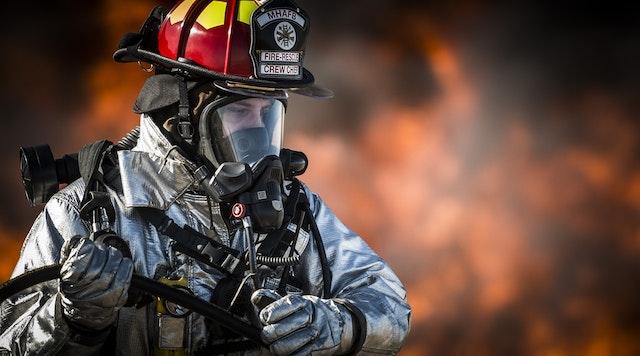Why Become a Firefighter, in Five Reasons
Aside from saving lives, firefighters are also responsible for protecting a community’s property. Firefighters use specialized tools to extinguish fires and protect people’s homes. During their training phase, firefighters learn to work in teams and consider other people’s needs.
Contents
You Can Save Lives
Firefighters frequently arrive at accident sites first. They are trained to help crash survivors escape from cars flipped over and can even pry open a door and get the crash victim into an ambulance before the emergency medical crew arrives. They may also assist with search and rescue efforts when someone has gone missing, and the local authorities are trying to find them. Their solid physical conditioning can make it easier to cover large areas quickly. Additionally, the fire department works hard to inform the public about safe practices. Firefighters can teach people about CPR and other skills that can help them save their lives.
You Can Earn Good Money
Aside from saving lives, firefighters can also earn good money. The pay is lower than other public service jobs, but it can be higher than nurses and police officers. The hours that you work can also affect your income. Some fire stations require you to put in 24-hour shifts, so be prepared for long days. Another issue that many firefighters cite is their need for more personal time. They often spend their time responding to calls for help and not seeing their families, which can negatively impact relationships.
Finding a second job that fits around the firehouse schedule can be challenging, but there are plenty of opportunities out there for firefighters to make extra cash on the side. But how do I become a firefighter in Texas? To work as a firefighter in Texas, you must fulfill the qualifications outlined by The Texas Commission on Fire Protection. In Texas, 18 years of age is the legal minimum to work in the fire service. It’s necessary to go through the entire procedure in advance since additional qualifications exist to become a firefighter in Texas.
You Can Make a Difference
In addition to fighting fires, firefighters help people and animals escape dangerous situations. It requires compassion and empathy for those who are in distress. Firefighters are often thrown into traumatic situations that can affect their mental health. It is why they need to remain healthy and mentally strong. Adaptability is another critical skill to have. It means seamlessly adjusting to new people, settings, and changing conditions. It is essential for those who are working in a team setting. You will need to work around any issues or pet peeves that you may have with those you are working with.
You Can Be Your Boss
If you are a firefighter, you know that sometimes your job can put you in dangerous situations. You don’t know what’s on fire, you don’t know who is inside the building, and you need to know if the roof will collapse or if your equipment will fail at the wrong time. Nevertheless, firefighters always do their best to save lives. They are educated to work swiftly and effectively, even when doing so exposes them to unknowable risks. They want to remain a student of their craft, always looking to learn something new. A good firefighter is a team player and never ignores a suggestion that may make their job safer or more accessible.
You Can Have a Flexible Schedule
There are ways to ensure a flexible schedule when you become a firefighter. These ways include working 12-hour shifts, 24-hour shifts, or a day/night schedule. The most common way to schedule a firefighter is to have them work a rotating schedule of 24-hour shifts. They usually work 10 of these shifts per month. However, this is sometimes the best choice for every department or station. It can be tough to plan out these shifts so that they’re all working together and not having any issues. It can be frustrating for the firefighters and station staff members. It can also be perilous for the fire crews as they may need help to relay messages correctly, and information might get lost during a changeover.

